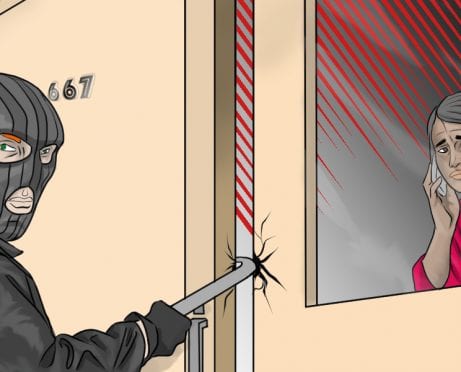
 When my partner and I were searching for a house, we thought there were so many options. Looking at the listings our agent provided, there were mini-mansions, smaller cottages, newer homes, and houses needing major renovations. But as we prepared a list of desirable qualities we wanted in our home, that large pool of options began to shrink significantly.
When my partner and I were searching for a house, we thought there were so many options. Looking at the listings our agent provided, there were mini-mansions, smaller cottages, newer homes, and houses needing major renovations. But as we prepared a list of desirable qualities we wanted in our home, that large pool of options began to shrink significantly.
It’s important when buying a home to determine what you want and what’s going to be best for your situation. Here are six important things you should consider before buying your home.
1. Location, Location, Location
Is the home in the area you'd want to live? Are grocery stores close by? We looked at proximity to my partner’s work so that we could cut down on the miles we put on our car and save some money.
We also wanted to be in a specific area of town – neighborhoods close in the city, where exciting developments were happening. If you are a member of a religious group or certain social groups, are there others like you living in the area? While we didn’t end up being in the same neighborhood as a synagogue due to affordability, we wanted to be in an area that was close-by and that was also close to the queer community.
Get Homeowner’s Insurance From a Top Provider — Free Quote Here >>
2. Resale Value
While you don’t want to assume that you’ll move again anytime soon, it’s always good to consider the resale value. Always keep the future in mind when buying a new home.
Is the area up and coming, or is it declining? Has it already reached the top of the market?
We looked at some great neighborhoods, but either the homes were too expensive for the repair work we’d have to put into them or they had already been redone. Is there a lot of new construction in the area, while the house you are considering is older? How does the house you like compare with others in the area? These are all things to keep in mind for the future.
Get a Free Quote for a Home Improvement Loan in Minutes — Visit Site >>
3. Size
While bigger homes tend to be more expensive, if you want more bang for your buck, you may be able to find larger homes far from the center of a city at less cost. On the other hand, you’ll need to consider commute times. A lot of people have moved to the far reaches of the northern part of Atlanta, and while the tech companies are up there, if you work at Coca-Cola or somewhere in the city, your commute could be nearly two hours one way because of traffic.
On the flip side, the older homes in the city from the 1940s are very small and some have terrible floor plans. If you have the money to tear down and build new, that’s a very popular option these days, but there was no way we could afford that.
4. Age and Condition
Some people are willing to pay more for a “move-in”-ready home that doesn’t need major repairs. Sometimes it might be worth it to get an older home and renovate yourself.
We thought that it would be easy to find a home in a desirable area that no one wanted because it was outdated, but we realized that after putting in two offers, we were competing with investors who had the cash to flip the house at a higher price. We couldn’t afford that, and we didn’t want to pay more than we were able to spend comfortably.
5. History of the Property
Some houses can't sell because of mold or a death that occurred, so it's good to know the history of the property.
Was there a fire or was a previous owner a drug dealer? How will that affect your desire to buy a home?
Someone I know bought a house even though it had severe mold problems. They fixed it up and are very happy, but I know that any house with a mold problem would be terrible for my allergies – it just isn’t worth it for us.
6. Price
Obviously, the biggest thing most people look at is affordability. If you’re moving across the country, you may have the flexibility to find an area where house prices are more affordable to you.
But the price varies not only across the country, but also within cities.
Trulia gives a great indication of home prices for each area. For homes sold in Atlanta between February 4 and May 4, the median sales price was $235,000, based on 2,480 sales. For the same period, the median price in Denver, CO was $330,000, based on 1,973 sales; and $196,250 (based on 4,540 sales) in Phoenix, AZ.
Choosing a home is a lot more complicated than it seems. We looked at about seven different neighborhoods and probably 20 to 30 homes over the course of eight months. We wanted to be in one area and then realized we couldn’t afford it.
Then we recognized that we needed more than one bathroom and more than two bedrooms to really be comfortable. As you see more and more homes, your must-have list and your would-be-nice list change.
Buying a new home is a big step for everyone and by following these tips you can make sure you make the best investment possible for your future.










